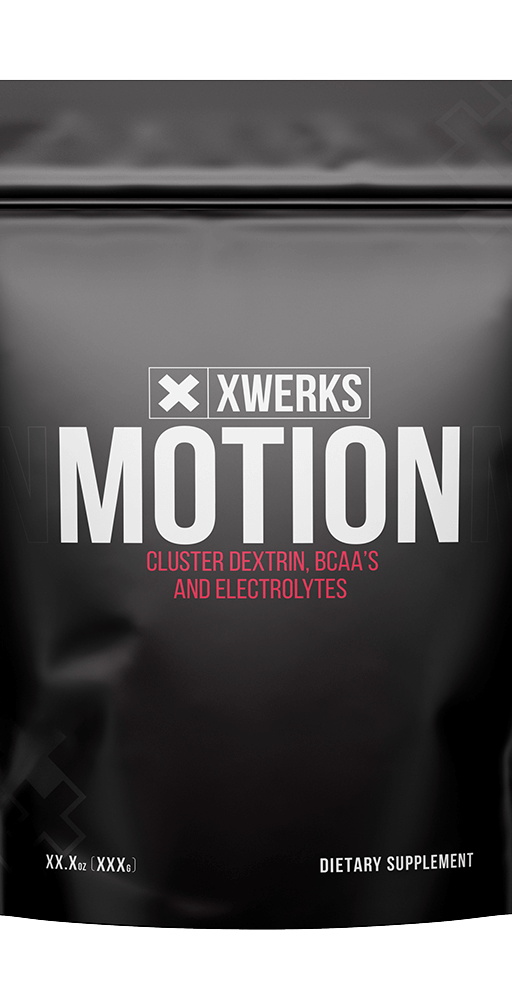In recent years, the ketogenic diet- or keto for short- has become quite popular. This diet requires that you keep your carbohydrate consumption under 50 grams per day, which is about 5% of your energy intake. Protein consumption on the keto diet needs to be moderate to high, which is about 1.2 to 1.5 grams per kilogram of body weight per day.
The other 80% of energy consumption comes from fats, which depends on the displacement of carbs versus proteins. This distribution of macronutrients results in the production of ketones in the body.
Testosterone & Cortisol
Testosterone is the primary sex hormone and is critical for the development and function of the reproductive system. Low testosterone is associated with an increased risk of developing certain chronic conditions, such as cardiovascular disease and type 2 diabetes.
Cortisol is the opposite of testosterone biochemically. When exogenous cortisol is administered, testosterone is lowered. This relationship between these two chemicals is likely due to their anabolic and catabolic properties.
Traditional Benefits of a Low-Carb Diet
For decades, there has been a lot of controversy surrounding low-carb diets. Some people believe the high fat content leads to high cholesterol and an increased risk of heart disease. However, most of the research indicates that this type of diet is associated with a variety of health benefits:
10 Possible Health Benefits of Low-Carb Diets
- Decreases LDL cholesterol
- Reverses 5 key symptoms of metabolic syndrome
- May reduce high blood pressure
- Reduces blood glucose levels
- Increases HDL cholesterol
- Reduces triglycerides
- Most of fat loss is from abdominal cavity
How Does Keto Affect Testosterone?
A recent study indicated that the effect of a low carb, moderate protein diet was not consistent on resting total testosterone. However, a low carb, high protein diet caused total testosterone to decrease by 37%.
This is because a protein intake of more than 35% may prevent the urea cycle from converting nitrogen from amino acid catabolism into urea. This results in hyperammonemia, which is toxic.
Testosterone suppresses the urea cycle, but glucocorticoids stimulate the urea cycle. The biggest decrease in cortisol was on a low carb, high protein diet. research has also shown that post-workout testosterone levels were high on long-term low carb, moderate protein and lower on low carb, high protein diets.
These findings suggest that the subgroup effects of total testosterone following workouts are explained by protein consumption instead of the duration of the diet.
It seems that high protein consumption depresses post-workout total testosterone to maintain stimulation of the urea cycle and increase excretion of nitrogen.
How Does Keto Affect Cortisol?
Since resting cortisol increases on short term but not long-term keto diets, it seems that it’s due to the role of glucocorticoids’ role in homeostasis of glucose. The following three factors increase on short-term keto, but not long-term keto diets:
- Cortisol
- Glucagon
- Gluconeogenesis
The initial increase in cortisol seems to be due to the temporary increase in gluconeogenesis due to glucocorticoids. Cortisol may also increase to keep glucose for brain functioning, as the brain can’t use fatty acids for fuel.
Research also shows that cortisol levels increase more during workouts when on a low-carb diet than when on another type of diet. Therefore, it seems that the increase in cortisol during exercise is likely due to the lack of available carbs.
There are three possible explanations:
- On a low carb diet, glycogen stores are partially depleted, which means cortisol increases to facilitate gluconeogenesis while working out
- During workouts on a low-carb diet, fat oxidation is higher. Therefore, cortisol may increase to induce lipolysis in adipose tissue.
- Working out stimulates the uptake of glucose by skeletal muscles, which causes cortisol to increase, preserving glucose for brain function.
Conclusion
Most of the evidence indicates that cortisol increases on short term (less than three weeks) keto diets. Research also reveals that resting cortisol levels return to normal after approximately three weeks on a low-carb diet, but post-workout cortisol stays elevated.
That being said, since there are not many studies and there are discrepancies in the results of long-term low-carb diet studies, more research is needed to confirm the effects.
Finally, it also seems that low-carb, high-protein diets cause a significant decline in the levels of resting total testosterone, which indicates that those who are on this type of diet need to be careful about adverse effects on their endocrine system.
References
American Diabetes Association. “Type 2 Diabetes - Symptoms, Causes, Treatment.” Diabetes.org, 2019, www.diabetes.org/diabetes/type-2.
BD Editors. “Anabolism.” Biology Dictionary, 13 Feb. 2017, biologydictionary.net/anabolism/.
Bernstein, Susan. “Glucagon: Hormone That Balances Blood Sugar.” WebMD, 14 June 2020, www.webmd.com/diabetes/glucagon-blood-sugar.
“Cardiovascular Disease: Symptoms, Types, Causes, Management & Prevention.” Cleveland Clinic, 10 May 2021, my.clevelandclinic.org/health/diseases/21493-cardiovascular-disease.
Cleveland Clinic. “Cortisol: What It Is, Function, Symptoms & Levels.” Cleveland Clinic, 10 Dec. 2021, my.clevelandclinic.org/health/articles/22187-cortisol.
“Gluconeogenesis - an Overview | ScienceDirect Topics.” Sciencedirect.com, 2018, www.sciencedirect.com/topics/neuroscience/gluconeogenesis.
“HDL Cholesterol: What It Is, and How to Boost Your Levels.” Healthline, 27 May 2021, www.healthline.com/health/cholesterol/hdl-cholesterol.
Hoffman, Matthew. “LDL: The “Bad” Cholesterol.” WebMD, WebMD, 3 Nov. 2008, www.webmd.com/heart-disease/ldl-cholesterol-the-bad-cholesterol.
“Hyperammonemia - an Overview | ScienceDirect Topics.” Sciencedirect.com, 2018, www.sciencedirect.com/topics/medicine-and-dentistry/hyperammonemia.
“Lipolysis: Purpose, Procedure, and Side Effects.” Healthline, 16 Oct. 2017, www.healthline.com/health/lipolysis.
Mawer, Rudy. “The Ketogenic Diet: A Detailed Beginner’s Guide to Keto.” Healthline, 22 Oct. 2020, www.healthline.com/nutrition/ketogenic-diet-101.
Mayo Clinic. “Can Triglycerides Affect My Heart Health?” Mayo Clinic, 29 Sept. 2020, www.mayoclinic.org/diseases-conditions/high-blood-cholesterol/in-depth/triglycerides/art-20048186.
“Metabolic Syndrome.” Www.hopkinsmedicine.org, www.hopkinsmedicine.org/health/conditions-and-diseases/metabolic-syndrome.
Roland, James. “What Are Glucocorticoids?” WebMD, 20 May 2021, www.webmd.com/multiple-sclerosis/what-are-glucocorticoids.
---. “What Is Testosterone?” Healthline, Healthline Media, 18 Apr. 2014, www.healthline.com/health/what-is-testosterone.
Streit, Lizzie. “What Are Macronutrients? All You Need to Know.” Healthline, 1 Nov. 2021, www.healthline.com/nutrition/what-are-macronutrients.
“Urea Cycle - an Overview | ScienceDirect Topics.” Sciencedirect.com, 2018, www.sciencedirect.com/topics/neuroscience/urea-cycle.
Vaskovic, Jana. “Adipose Tissue.” Kenhub, 29 Oct. 2020, www.kenhub.com/en/library/anatomy/adipose-tissue.
“What Are Ketones? - Perfect Keto.” Perfect Keto, Sept. 2019, perfectketo.com/what-are-ketones/.






















